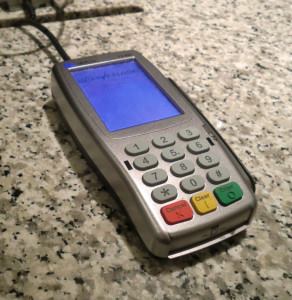In a move that dismayed many retailers, the U.S. Supreme Court has said it will not review an appellate court’s ruling on whether the Federal Reserve set a 2011 cap on debit card swipe fees higher than the level sought by Congress in 2010.
The National Retail Federation has been outspoken in its unhappiness over the justices’ refusal on Jan. 20 to review the lower court’s ruling.
“The court’s decision is disappointing because it leaves merchants and their customers paying far more than intended by Congress,” said Mallory Duncan, senior vice president and general counsel for NRF, in a statement. “… The court’s ruling means retailers will keep paying billions of dollars more than they should, and the fee-hungry banks will continue to rake in unearned profits that ultimately come out of consumers’ pockets. We will continue to press the issue.”
Indeed, NRF was one of several organizations that filed the petition last August, asking the justices to review the case. Joining NRF in the petition was the National Association of Convenience Stores, the National Restaurant Association, the Food Marketing Institute, and several large companies, all of whom were plaintiffs in the original lawsuit.
Critics say the Federal Reserve’s 21-cent cap came about as the result of heavy lobbying by the financial services industry. J. Craig Shearman, vice president, government affairs and public relations at NRF, told PSN that the 21-cent cap is “basically five times as much as the actual cost [to banks to process each transaction].”
Over the years, there has been much debate over what the cap amount should be. In 2011, some retailers applauded the 21-cent cap on swipe fees because at the time, the fees were around 45 cents. But there was some grumbling, too, because original proposals had called for fees to not exceed 12 cents.
Clearly, this debate is not over.



